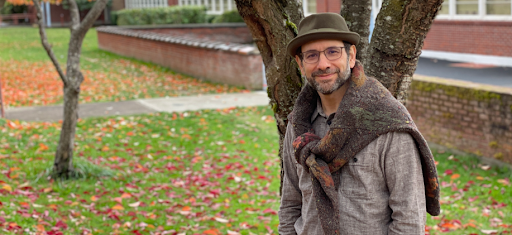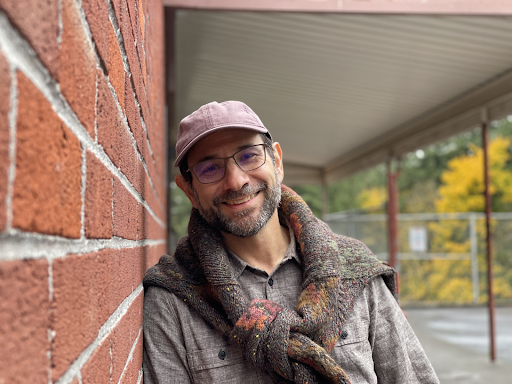Spirituality Should Be A Tool For Transformation And Unity Says Rabbi David Kosak

Spirituality is a multi-faceted term encompassing various concepts tied to identity, purpose, and connection. While religions function with a set of organized beliefs, spirituality is a highly flexible way to obtain inner peace and connection to a higher power.
No matter what spirituality looks like to an individual, it involves universal themes of love, belonging, compassion, and shared experiences of reality. Spirituality can be a catalyst for personal growth and fulfillment, and significantly enhance physical and mental well-being.
Studies show that spiritual practices like meditation and prayer can lower anxiety and depression and create a sense of hope despite external hardships. This provides an unwavering sense of purpose and support in navigating challenging periods of life. Maintaining a strong spiritual practice also comes with additional benefits including promoting social cohesion and ethics.
Ultimately, spirituality is a driving force behind self-actualization, a person's ability to be a contributing member of society and sometimes provides a direct experience of unity. It should be no surprise then, that spirituality has been on the rise in recent years, especially after the pandemic rocked everyone's faith in humanity. In 2023, 70% of American adults considered themselves spiritual, either because they identify as such or find importance in spiritual habits. This portion of the nation's population is growing steadily as younger generations move away from institutionalized religion for a more individualized faith path aligned with their unique views on life.
David Kosak, a prominent faith leader and Senior Rabbi at Congregation Neveh Shalom, sees positivity in this trend. An increase in spirituality isn't a threat to organized religions. It can actually increase faith diversity and encourage communities to be tolerant of differences. However, David advocates for spiritual or religious individuals to learn about the three types of spirituality and their impact on communities. Religion or spiritual groups can exhibit a variety of these traits at once, but David believes unity spirituality is the most beneficial for humanity. He draws on analogies about human tribalism and the environment to explain why.
Violence, bigotry, and a sense of superiority are the defining characteristics of splinter spirituality, which exacerbates human's inherent sense of tribalism. Because many individuals have only encountered splinter spirituality, they have a negative perception of religion and the way it can divide society.
The second manifestation is identity spirituality. This belief system places a strong emphasis on rituals, talismans, and other behaviors that can be considered religious behaviorism that impart a sense of connection without personal transformation.
Unity spirituality, the expression of belief that David advocates for, differs from the previous types because of its transformational nature. When compared to identity-based or splinter spirituality, this unifying approach transcends the inherited structure of belief, enabling people to discover themselves as they deepen their faith. This is a major reason why David cites unity spirituality as the gold standard for how people should strive to express their beliefs.
"Unity spirituality is a term I coined to describe a kind of perennial wisdom that allows the devout to find belonging and experience inner growth while also recognizing the commonalities they share with others," David says. "The basis of this positive expression of spirituality lies in its focus on compassion, tolerance, and humanity while honoring all creation. Rather than getting bogged down by the things that separate us, people embracing this school of thought are open enough to sense that we as humans are all connected regardless of any distinction we can see with our eyes."
In an age where polarization is at an all-time high, David's take on community and collective responsibility is a bit jarring. Although the thought leader never places blame on individuals for falling into their primal urge to identify strongly with social groups, humans have an innate tendency to demonstrate favoritism for 'in-groups' and hostility toward 'out-groups'. This tribalism is an evolutionary default mechanism for humans, who have used this practice to evade predators and survive harsh conditions.

Instead of focusing on what people can't control, David brings attention to strategies and perspectives that can temper this drive and therefore unite communities.
"Nonviolent communication and frequent conversations at the intersection of different faith groups are powerful antidotes against prejudice and discrimination," David explains. "Humans empathize more with people they are familiar with and often seek out information and groups that validate their existing beliefs. When most of us live in a bubble of curated experiences and social groups aligned to our perspective, it's difficult to break out of this shell and see how our preconceived notions are actually misguided."
The first step to nurturing this sense of unity and connection requires a conscious decision fueled by courage and faith. However, this investment pays generous dividends to those stepping outside their comfort zone. Enhanced creativity, problem-solving, and better interpersonal relationships are just a few benefits for individuals who welcome diversity–whether it be tied to spirituality or not.
From a big-picture context, the collective can also experience advantages from unity spirituality and the tolerance that comes with it. David uses the environmental crisis as a timely example of what's possible when people work together. "Humanity repaired gaping holes in the ozone layer by making technical changes that protected our atmosphere. Whether we're looking to shore up the holes in our planet or our souls, society can find medicine in our fellow man just as easily as other resources," he says.
Some might even argue that climate change is a symptom of society's spiritual defects that manifest as a scientifically driven phenomenon. When examined from this angle, faith quickly becomes a common denominator for healing, unity, and progress.
When society limits itself to identity or splinter spirituality people experience the world as deeply subjective and remain divided. Unity spirituality, however, provides a more objective and universal experience of humanity's bonds with one another. As more people awaken to this, David envisions a society where people find solace in one another and work together to conquer challenges and achieve harmony.
© Copyright IBTimes 2024. All rights reserved.





















